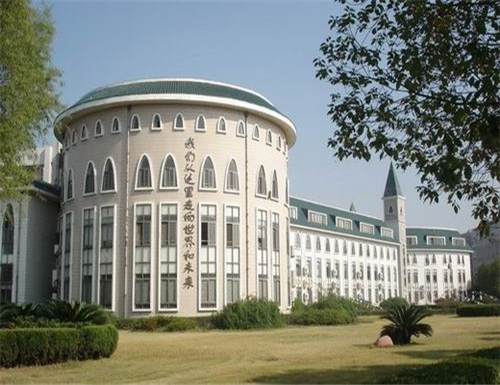小学英语语法知识点:形容词
小学英语语法知识点:形容词
1. 形容词的位置:
代名形容词+数量形容词+性状形容词+名词
再细分如下:
1放在冠词前的形容词(all, both, such...)+2冠词、指示形容词、所有形容词、不定形容词(the, a, an, this, that, your, some, any...)+3序数(first, second...)+4基数(one, two...)+5性质、状态(kind, fine, good...)+6大小、长短、形状(large, small, big...)+7新旧、温度(old, new, hot...)+8颜色(red, blue...)+9国籍(Chinese, English, Japanese...)+10材料(iron, brick, stone...)+11名词、动名词(boy, house...)
2. some和any的用法:
(1)两者修饰可数单数名词,表某一个;任何一个; 修饰可数复数名词和不可数名词,表一些;有些。
〔2)一般的用法:some用于肯定句;any用于疑问句,否定句或条件句。
I am looking for some matches.
Do you have any matches? I do not have any matches.
〔3)特殊的用法:
(A) 在期望对方肯定的回答时,问句也用some。
Will you lend me some money? (=Please lend me some money.)
(B) any表任何或任何一个时,也可用于肯定句。
Come any day you like.
(4)some和any后没有名词时,当做代名词, 此外两者也可做副词。
Some of them are my students.〔代名词)
Is your mother any better?(副词)
3. many和much的用法:
〔1)many修饰复数可数名词,表许多; much修饰不可数名词,表量或程度。
He has many friends, but few true ones.
There hasn‘t been much good weather recently.
(2)many a:
many a和many同义,但语气比较强,并且要与单数名词及单数形动词连用。
Many a prisoner has been set free. (=Many prisoners have been set free.)
〔3〕as many和so many均等于the same number of。 前有as, like时, 只用so many。
These are not all the books I have. These are as many more upstairs.
They worked like so many ants.
(4)as much等于the same amount of, 表同量和同一事情。
He bought two pounds of sugar and as much tea. 〔同量)
I was not in the least surprised, for I had fully expected as much. 〔同一事情)
(5)many和much之后不接名词时,作为代名词;另外much也可用副词。
Many of them were very tired.
I don’t eat much for lunch. 〔代名词)
He is much taller than I. (副词〕
4. (a) few和(a) little的用法:
(1) (a) few用在复数可数名词之前,(a) little用在不可数名词之前。
He took a few biscuits. (=several)
He took few biscuits(=not many)
He took a little butter. (=some)
He took little butter. (=not much)
(2) few可由bardly any或almost no所取代,含否定的意味。
The composition is well written; it has few (=hardly any) mistakes.
Few (=Almost no) men can solve it.
(3) a few相当于some, several, 含肯定的意味。
He has a few (=some or several) friends.
(4) a little和little之间的差别,就和a few和few的差别一样,只是(a) little须修饰不可数名词,表量或程度。
He grows worse; there is little hope of his recovery.
He is not much better, but there is a little hope.
5. 其他的数量形容词:
(1) plenty of, a lot of, lots of均表许多,修饰复数可数名词或不可数名词。
The room contained plenty of (or a lot of or lots of) students.(复数名词)
The room contained plenty of (or a lot of or lots of) furniture.(不可数名词)
(2) a great (or a good) deal of, a large (or a small) quantity of, a large (or a small) amount of, 均表(量), 修饰不可数名词。
The room contained a great deal of furniture. (不可数名词)
The room contained a good deal of furniture. (不可数名词)
The room contained a large quantity of furniture. (不可数名词)
The room contained a large amount of furniture. (不可数名词)
The room contained a small quantity of furniture. (不可数名词)
The room contained a small amount of furniture. (不可数名词)
(3) a number of “许多;一些”;a great (large, good) number of “许多”,修饰复数可数名词,并且要与复数动词连用。
A number of books are missing from the library.
The number of books from the library is large.
(the number of +复数名词←→单数动词)
The room contained a great (or large or good) number of students.(复数可数名词)
(4) enough的用法:
(A) 可接复数可数名词和不可数名词。
There are enough chairs. (可数)
There is enough furniture. (不可数)
(B) 可放在年修饰名词的前后。
We don‘t have enough time. =We don’t have time enough.
(5) hundreds of, dozens of, thousands of, scores of +复数可数名词
冠词或数词(one, two...) + (hundred, dozen, thousand, score) 复数可数名词
(6) the rest of “其余的”, 可接复数可数名词及不可数名词,作主词时,接可数名词则用复数动词,接不可数名词则用单数动词。
The rest of the students are absent. (复数可数名词)
The rest of the water was thrown away. 不可数名词)
注:the rest作代名词, 等于 the others, 和复数动词连用。









